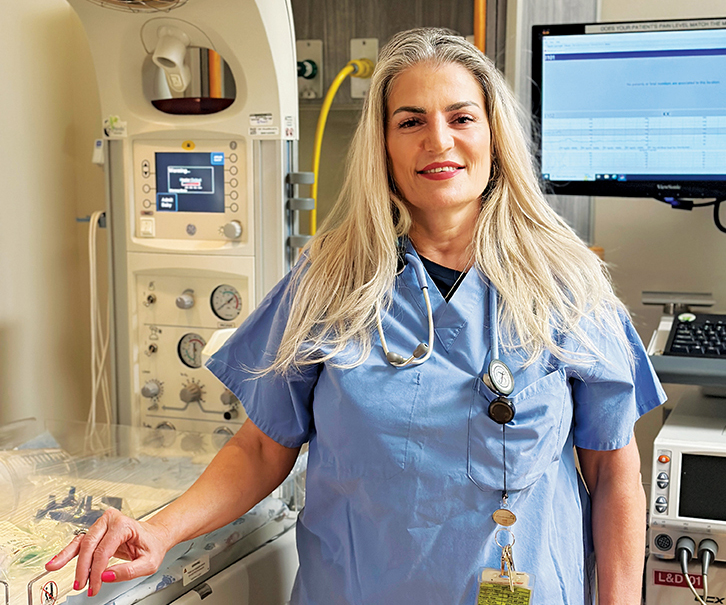My Specialty
Labor & Delivery, Gayane Cherechyan, Adventist Health Glendale
Care and advocacy for new moms and babies

Gayane Cherechyan, RN, BSN
Lead Charge Nurse/ Relief Shift Supervisor Labor & Delivery
Adventist Health Glendale
Please tell us the story of your nursing career journey.
When I was nine years old, my mom was in the hospital for five months. She wanted one of her kids to be in the medical field so there would always be someone she could trust. I promised myself that I was going to fulfill her wish.
I became a nurse in 1988 and worked in a children’s hospital in my native Armenia. However, when I immigrated to the U.S. in 1992, I had to start all over. I became a medical assistant and surgical tech for several years, with the goal of becoming a licensed nurse again and working with moms and babies. I became an RN again in 2005 and was hired by Adventist Health Glendale into L&D, exactly where I wanted to be. They made me a charge nurse in 2009. I love working here and have always worked on the night shift.
What do you love most about labor & delivery?
In L&D, the atmosphere is happy 99 percent of the time! Even when moms are in pain, you can usually make them comfortable and help them get through it. I love babies and moms, and I enjoy the entire patient-care process. As a leader, I love mentoring new grads and making sure they get the right experience.
Do you have a patient story that you can share?
One day, the ER sent up a pregnant mom in labor. Her clothes were soaked from her water breaking on the way upstairs, and she was too weak to lift herself from the wheelchair. As I called for more help and for someone to start an IV, I noticed that the baby’s feet were already out.












